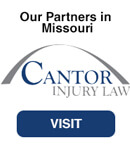Needlestick and Sharps Injuries in Philadelphia
A needlestick injury is exactly what it sounds like – being stuck with a needle that punctures the skin leaving a wound. Sometimes this happens with other sharp objects such as scissors, razors, scalpels, clamps, pins, or lancets. Anything sharp enough to cut through the skin can cause a “sharps” injury.
Workplace needlesticks and sharps injuries in Philadelphia occur when medical tools are used but not disposed of properly. Left exposed in trash containers or lying in bed linens, other unsuspecting medical personnel or cleaning crews can be accidentally stuck with the used needle or sharp object. Injuries can also occur during insertion or removal of needles, in transit to disposal, during the transfer of equipment, or in a collision with a sharp or worker. If you have been cut by a needle or sharp object while at work, is it vital to contact Gross & Kenny, LLP immediately.

Associated Risks
Being stuck with a needle or a sharp while at work in Philadelphia potentially exposes the hurt person to infectious diseases, especially bloodborne viruses, that the patient may have. Contaminated needles can inject hazardous fluids through the skin and into the body. Even a small amount of infectious fluid is enough to spread some diseases. Cuts in the skin made by sharps allow the same kind of contact of blood and fluids.
Hepatitis B (HBV), hepatitis C (HCV), and Human Immunodeficiency Virus (HIV), which can develop into Acquired Immune Deficiency Syndrome (AIDS) can all be transmitted by needlestick and sharp injuries. The degree of risk varies by which pathogen was involved and how advanced the disease was in the patient.
Other kinds of diseases that can be contracted through needlesticks and sharps include bacteria, fungi, and other microorganisms such as:
- Blastomycosis
- Cutaneous gonorrhea
- Diphtheria
- Herpes
- Malaria
- Staphylococcus aureus
- Streptococcus pyogenes
- Syphilis
- Toxoplasmosis
- Tuberculosis
Bustleton workers who may be at risk for needlestick and sharps injuries include healthcare workers, correctional healthcare workers, first responders, veterinarians, and maintenance and waste workers.
Preventing Injuries
The best way to protect employees from a work-related injury is through prevention. Eliminating risk by reducing needles used for medication delivery, specimen collection, and as many procedures as possible is ideal. Where this is not possible, the following guidelines are necessary to prevent workplace needlestick and sharps injuries in Philadelphia:
- Effective Disposal Systems – This is a crucial step in protecting workers. Wide mouth, puncture-proof containers should be readily available where needles and sharps are used to ensure safe disposal. When they are three-quarters full, containers should be sealed and disposed of according to local regulations for biomedical waste.
- Equipment Design – Choose equipment designed with safety in minds such as protected needle devices or needle-free systems that use self-sealing ports and syringes. Devices with passive safety systems are more effective than those with safety mechanisms that need to be activated.
- Training – Staff should be trained on the hazards of using needles and sharps and on the use of safety equipment. Studies show that when both conventional and safety devices are available, nurses will often choose a conventional device that they are more familiar with and used to use, which puts them at greater risk of injury.
- Work Practices – Safety controls should be implemented to reduce the risk of injury. These include avoiding passing sharps hand-to-hand and using tools to grasp and unload needles and scalpels. Staff should be monitored to ensure compliance with the disposal system.
What to Do
If you have been stuck with a needle in South Philadelphia, make sure you cleanse the wound thoroughly with soap and water. If contact was made with skin, nose, or mouth, these should be flushed with water. Eyes can be irrigated with saline solution. It is very important to report the incident and seek care which includes medical testing for HIV, HBV, and HCV. The following information should be documented in your report:
- The time and date of injury, the procedure being performed, and an injury site.
- The type of sharp/needle that caused the injury including the brand name. If the device had a safety mechanism that malfunctioned be sure to report that as well.
- Your health status and the health status of the patient, especially the presence of known bloodborne pathogens.
If you have any further questions about what you should do after workplace needlestick or sharps injuries in Phildelphia, contact Gross & Kenny, LLP.
Workers’ Compensation
If you test positive for a disease acquired from a needlestick or sharps injury that happened at your Philadelphia workplace, your employer may be liable for the cost of your medical care and monitoring, as well as your wage loss benefits, if you are unable to continue working. Even if you are not infected, but were forced to miss work while waiting for the results of testing, you may be eligible for temporary disability benefits. If your injury was caused by faulty safety equipment, damages may be recovered from the manufacturer through a third-party claim.
Get Help With Workplace Needlestick and Sharps Injuries in Philadelphia
If you have experienced a workplace needlestick or sharps injury in Philadelphia, contact an experienced workers’ wompensation lawyer of Gross & Kenny, LLP. Call us as soon as possible to schedule a free consultation with an attorney serving Bustleton and South Philadelphia workers.



